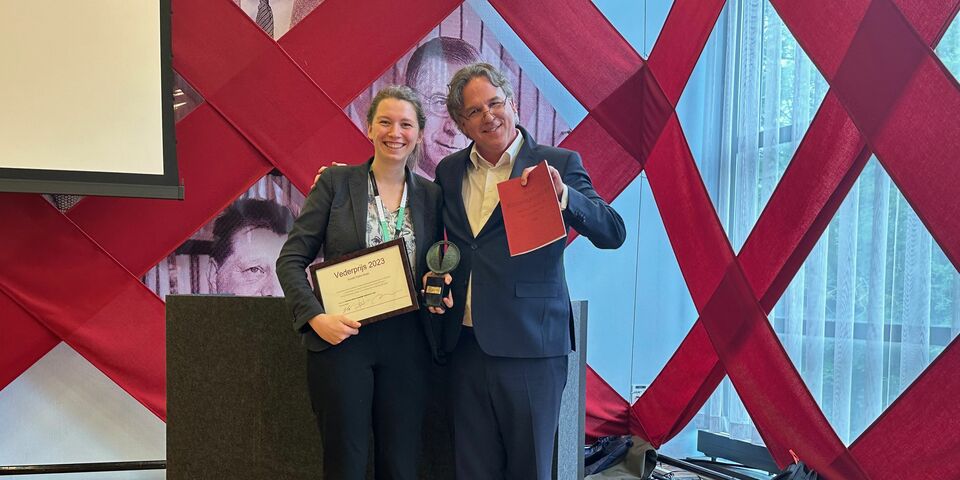Every year, the Veder Scientific Radio Foundation awards the Veder Prize to one or more Dutch scientists who have made remarkable contributions to the field of radio technology.
This year, the prize was presented to Anouk Hubrechsen, CEO of TU/e spin-off ANTENNEX. During a theme meeting at the Auditorium on Friday afternoon, the Veder Foundation board praised her efforts to commercialize a new antenna measurement method. According to Mark Bentum, TU/e professor in Radio Science and board member, it is exceptional that Hubrechsen is the third consecutive TU/e winner. “This is a testament to our innovative efforts. After Teun van den Biggelaar and Robert Schulpen, there is now recognition for the exceptional work of Anouk Hubrechsen.”
“A tremendous honor,” says Hubrechsen. “So much is happening in the field of radio frequency technology at the moment. Developments are advancing at breakneck speed, partly because of increasing wireless communication. All devices connected to wireless – 5G – networks contain small antennas that transmit at high frequency. Because the antennas are often integrated with chips, testing is quite difficult. But we have managed to optimize that using a new measurement method based on a concept from acoustics.”
During her PhD track, Hubrechsen developed a unique table-top reverberation chamber that allows for much more accurate and faster measurement of high-frequency antennas. Through ANTENNEX, founded by the TU/e antenna measurement group in 2021, she is now going to bring this reverberation chamber to the market for commercial use.
Who was Anton Veder?
In 1927, the Veder Scientific Radio Fund was founded by Anton Veder, a Rotterdam banker who was also an avid radio amateur in his spare time. So avid, in fact, that he also introduced his hobby to his wife and daughter and had them learn the entire Morse code alphabet.
In addition to having very advanced transmission equipment at his home – during the First World War he provided several important radio connections – he was also very interested in the latest scientific developments. This eventually led to the establishment of a foundation that ever since has been committed to promoting scientific radio research by means of an annual prize.


Discussion